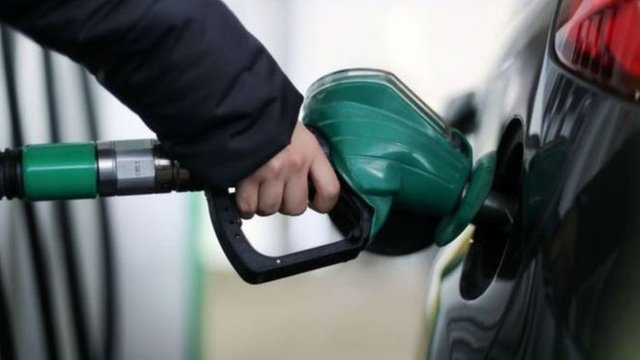
The price of oil was the biggest increase in four years to reach $ 70 a barrel.
Since December 2014, oil prices have not reached that level, but the rally came after members of the Organization of Petroleum Exporting Countries (OPEC) said they would continue to curb production.
OPEC has 14 countries, which are the world's largest oil exporters and control 40% of world output.
The British RAC RAC warned that high oil prices could lead to higher fuel costs.
Saudi Arabia: World oil markets are improving and stabilizing
Tension in Iraq raises oil prices
But drivers can benefit if supermarkets resume the oil price war, according to the AA-Irish Association of Road and Vehicle Services.
Cut production until the end of the year
Suhail Al Mazrouei, the UAE's oil minister and OPEC president, said the organization was committed to cutting output by the end of the year.
Last year, OPEC and other countries, including Russia, said they would extend the production cut, which was concluded in 2016, to help support oil prices, which fell below $ 50 a barrel.
The sudden drop in US oil inventories also boosted oil prices on Thursday.
The US Energy Information Administration said crude inventories fell by about five million barrels to record 419.5 million barrels, in the week to 5 January. US production fell by 290,000 bpd to 9.5 million barrels.
US oil also rose 1.5 percent to $ 64.51 a barrel.
Rising fuel prices
RAK said rising oil prices were likely to have "a steady impact on fuel stations as rising oil prices would lead to higher wholesale prices for fuel."
The price of unleaded gasoline has risen nearly 5 pence since November to 121.26 pence per liter, while diesel prices rose 3 pence to 123.97 pence during the same period.
The cost of putting 55 liters in a family car would cost 66.69 pounds for gasoline and 68.18 pounds for diesel, she said.
"If oil remains at this level, the rise in fuel prices at stations will be almost inevitable," a RAK spokesman said.
But AA said: "The arrival of a barrel of oil to $ 70 has not yet threatened the rise in fuel prices in Britain's stations."
According to data from AA, supermarkets in Britain lowered gasoline prices several times last year to reach a low of 111.8 pence per liter in July.
While acknowledging that wholesale prices rose, they show that the current price hikes are more reflective of lower competition in fuel prices in supermarkets.
By December, gasoline prices averaged 117.6 pence per liter in supermarkets in Britain, while prices rose to 121.9 pence per liter in other outlets.
Thank you for reading this, and i hope you enjoyed it.

This is the best post on Steemit. I gave you a vote now, ya heard?
Downvoting a post can decrease pending rewards and make it less visible. Common reasons:
Submit
i heaaaaaaaard :D thank you soo much for ur support buddy <3
@iarticle
Downvoting a post can decrease pending rewards and make it less visible. Common reasons:
Submit